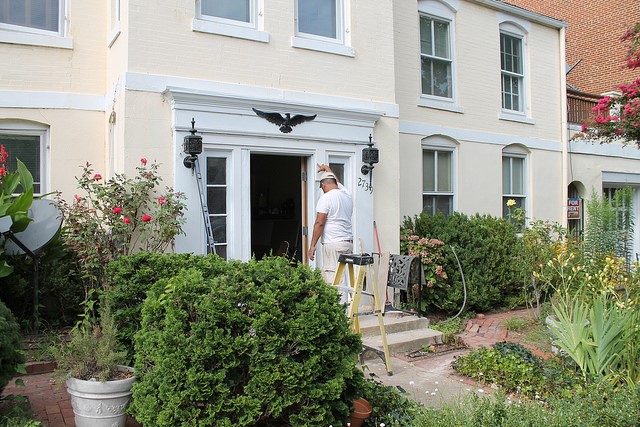Frequently Asked Questions About Residential Light Sockets
While it’s not something that you should have to regularly do, there may come a time when testing a light socket may be needed. If this isn’t something that you’ve ever done on your own, you may have many questions about this, including when this is needed, how you do it, and what you should do if the test shows there’s no electricity coming from the socket. Read along as an electrician answers the questions you have.
Contents [hide]
When Should You Test One?
If your light fixture stops working, the first thing you may think is that the light bulb burned out and needs to be replaced. As such, you may immediately try to replace the light bulb. If this doesn’t solve the issue, the next thing that you should do is check your electrical panel or breaker box. You want to ensure a fuse hasn’t blown, or a circuit hasn’t been tripped. If these two common issues don’t get your light fixture back on, it’s time to test out your light socket.
Can You Test a Socket on Your Own?
If you feel comfortable doing so, you can test a light socket, also referred to as a light bulb socket on your own. You will need a non-contact voltage tester in order to test it. This is a tool that you can find at any big box retailer, how improvement store, or large online retailers. If you don’t feel comfortable testing the socket yourself, you can hire an electrician to complete the test for you.
How Do You Test One?
The easiest way to test a light socket is to test it while there is power to the fixture. If you are testing the socket for a light fixture, you will want to remove the light fixture. From there, remove the mounting screws and gently lower the socket. Ensure your voltage test is set to read AC voltage. One of the probes should touch the hot screw terminal, or the terminal attached to the black wire, while the other probe should touch the ground screw, or the screw attached to the copper wire or metal electrical box. If the reader says 120 V, your light fixture is receiving power. If there is no reading, there is an electrical issue with the fixture.
What Are the Reasons Why a Socket May Not Receive Electricity?
Unfortunately, there are many reasons why a light socket may not be receiving electricity, and there’s no way to tell what the reasoning is without dismantling the socket itself. The socket itself may be bad, or the wiring connected to the socket may be frayed, corroded, or stripped. Pests can damage the wiring, as can water leaks in your home. Age can also negatively affect the wiring.
What Should You Do If Yours Isn’t Working?
If you have tested a residential light socket, and it’s not receiving any electricity, you should call in an electrician. An electrical contractor can determine why the socket isn’t working and then either replace the socket or change out the wiring. Neither of these are tasks that a homeowner should attempt to complete on their own. You can damage your light fixture, create problems with your electrical system, or even cause an electrical fire if you attempt to repair either of these issues and do so incorrectly. Electrical repairs should always be left to a licensed and insured residential electrician.
A voltage tester is needed if you plan on testing a light socket. Fortunately, this tool is rather inexpensive, and you can pick one up for $20 or less at any online retailer or home improvement store. Once you have this tool, testing the socket is fairly easy and fast. Depending on the results, you may need to call in an electrician to help determine why there is no electricity and make the repairs that are needed. This helps ensure your fixture emits the light that you need to see in your home.




